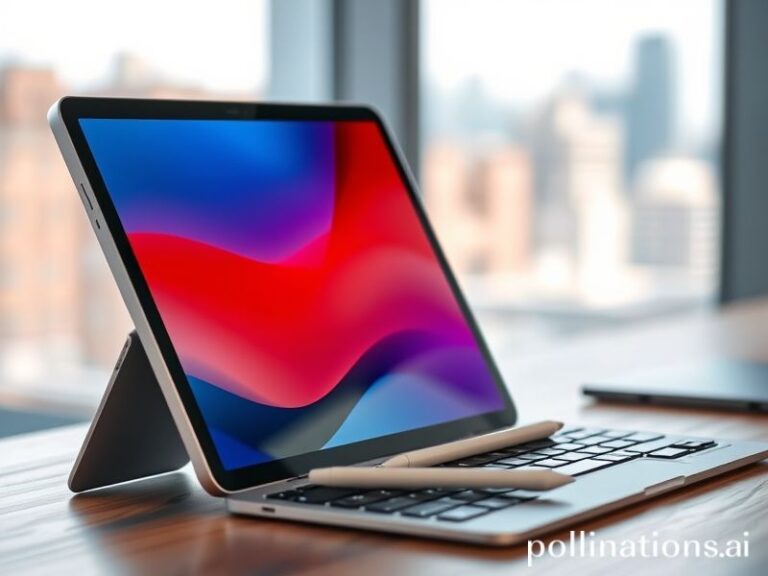Robert Sánchez: The Accidental Poster Boy for a World Drowning in Containers
Global Shipping’s Newest Scapegoat: How Robert Sánchez Accidentally Became the Face of Post-Pandemic Logistics Schadenfreude
By Dave’s Locker International Desk
The name Robert Sánchez is currently trending in fourteen languages, three parliamentary inquiries, and at least one very sour group chat of Rotterdam dockworkers. That is a remarkable feat for a 52-year-old Spaniard whose day job, until very recently, was to make sure boxes moved from Point A to Point B without anyone noticing. Alas, we noticed.
Sánchez was the quietly efficient COO of Mediterranean Freight Lines (MFL), the sort of middle-tier container carrier that keeps global capitalism humming along like a cheap air-conditioner—loud, indispensable, and rarely praised. Then, in early May, a perfectly ordinary 24,000-TEU vessel named MSC València tried to dock at the Port of Los Angeles, discovered every berth occupied by a TikTok influencer’s “haul” of Korean skincare, and performed what maritime lawyers clinically term a “very slow pirouette of despair.” The ensuing 96-hour traffic jam—visible from the International Space Station and several adjacent conspiracy subreddits—shoved Sánchez onto the world stage, clutching a laminated flowchart and the haunted expression of a man who realizes he is now the main character.
International Schadenfreude Supply Chains
The timing was exquisite. Europe was busy blaming Asia for chip shortages; Asia was blaming North America for buying too many ergonomic office chairs; North America was blaming everyone for still using those laughably antique metal boxes we call shipping containers. Into this circular firing squad walked Sánchez, live on Bloomberg, attempting to explain why 7 % of the planet’s bath toys were presently circling the Pacific like disconsolate rubber ducks.
His explanation—delivered in slightly accented English, the lingua franca of global buck-passing—was simultaneously too honest and too boring for the outrage economy. He cited “algorithmic bullwhip effects,” “phantom bookings,” and “the Chinese New Year that never ended,” all of which sounded like euphemisms for late-stage capitalism having a panic attack. Within minutes, #SánchezSlowDown trended in Mumbai, Montevideo, and Minsk. By close of trading, MFL’s stock had dropped 11 %, and someone in Lagos had already minted an NFT of the València doing doughnuts.
The Geopolitical Punchline
The incident would have remained a two-day meme had it not coincided with the G7’s latest attempt to look decisive about supply-chain resilience. Suddenly, Sánchez’s logistical hiccup was rebranded as a “wake-up call,” “inflection point,” and—because diplomats love a good war metaphor—“the containerized equivalent of a shot across the bow.”
Washington proposed a new Indo-Pacific Maritime Compact (catchy acronym still in committee). Brussels dusted off plans for strategic drone-zeppelins—yes, really—while Beijing suggested, with the sincerity of a loan shark offering a loyalty card, that perhaps the world should rely more on China’s “stable, win-win” ports. Tokyo, ever polite, simply increased funding for robots that bow apologetically when they misplace a pallet. Sánchez, meanwhile, was summoned to testify before an EU Parliament subcommittee that met, without irony, on Zoom because half its members were stuck in airport lounges with lost luggage.
Human Error, Now Available in 4K
Body-cam footage leaked from the Port of Rotterdam shows Sánchez standing atop a container labeled “Live Crabs—This Side Up,” pleading with crane operators in four languages plus improvised semaphore. The clip was remixed into a lo-fi study beat, a K-pop dance challenge, and—my personal favorite—an eight-hour “slow TV” loop for Norwegian insomniacs. Somewhere in a Davos after-party, a venture capitalist reportedly asked if Sánchez could be franchised.
Exit, Pursued by a Container
On May 20, MFL announced “mutually agreed operational realignment,” corporate argot for “we threw someone off the boat.” Sánchez was reassigned to “special projects,” which in maritime circles means either early retirement or being locked in a room to redesign the org chart until morale improves. Yet the global appetite for scapegoats is bottomless: the same week, a minor customs delay in Singapore was immediately christened “Sánchez 2.0” by freight-forwarders with a gift for branding.
Conclusion: A Small Man for a Large Problem
Robert Sánchez did not invent just-in-time inventory, consumer FOMO, or the physics that allow only one ship to occupy a berth at a time. He merely had the misfortune of becoming the face of a system that is finally, gloriously, visibly failing. In that sense, he has done us all a favor: he has turned abstract supply-chain fragility into a single, exhausted human being we can meme, vilify, and—let’s be honest—secretly empathize with. Someday, when historians sift through the rubble of 2020s globalization, they may find a grainy image of Sánchez on that crab crate, arms spread like a low-budget messiah, and conclude that this was the moment the world realized its Amazon Prime addiction was non-refundable.
Until then, the containers keep coming, the algorithms keep glitching, and somewhere on a golf course in Valencia, a newly unemployed logistics guru is discovering that irony, unlike freight, travels faster when it’s light.







